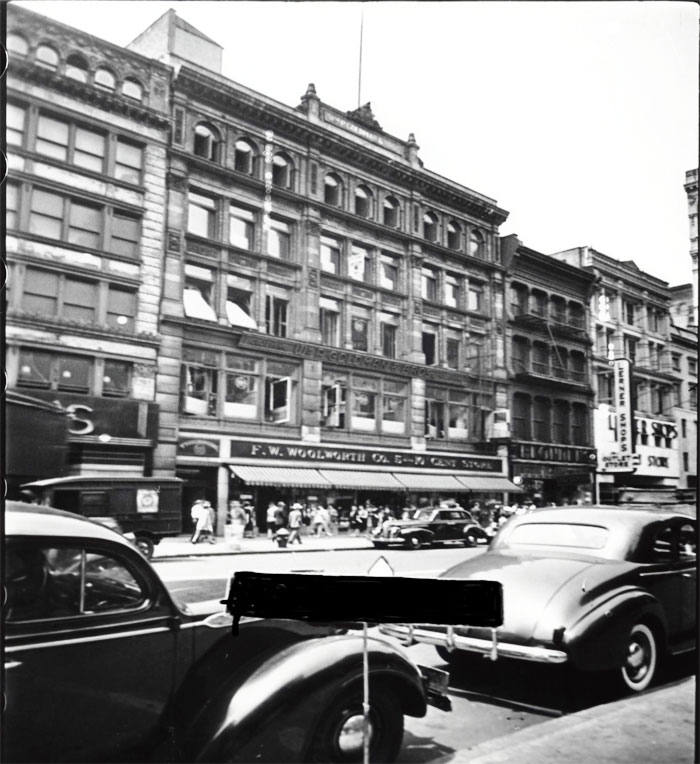This quarter, a new wave of sit-down restaurants and bars opened in Union Square, doubling the openings in this category for 2024 year-to-date compared to the same period last year. Notable newcomers include jazz club and Japanese whiskey bar Midnight Blue, from the team behind top cocktail bars Martiny’s and L’Americana, and Amo Seafood, a new favorite for Italian coastal cuisine. 17th Street has blossomed into a culinary destination. The newest arrivals are the highly acclaimed Peruvian restaurant Mission Ceviche and the Vietnamese gem
La Dong, which join the notable 2024 arrival Kanyakumari. Alongside beloved staples Lillie’s, Pasta Eater, and Laut, this vibrant street is your go-to spot for an unforgettable meal.
You are currently browsing the monthly archive for November 2024.
More than 100 booths fill Union Square Park for its annual Holiday Market. You’ll find plenty of affordable, quality items, as well as coupons for local businesses at the information booth. Your wallet will thank you. Update: The Union Square Holiday Market will be open November 16–December 24, 2024; find more NYC holiday content here.
Please be advised that curbside composting began on October 6, 2024. The program is mandatory and requires buildings to separate food and yard waste from other trash and recycling items. However, there is a grace period until April 2025 to allow buildings to implement the proper procedures and get everything in order.
- We have ordered one bin for each building and have ordered a second for each building in anticipation of participation.
- Residents are required to bring their food waste materials down and place them in the composting bin. The bins are on the second floor of 14th Street and in the garbage area in the back of the lobby on 13th Street. They are in place and ready for use.
- Acceptable materials for the composting bin include all food scraps, bones, dairy, prepared/cooked foods, and food-soiled paper (napkins, paper plates, coffee filters).
- Recycling and trash procedures remain unchanged.
Please see the attached DSNY flyer detailing acceptable materials for the composting bin. Additional guidance and recommendations include:
- Drain liquids before placing food scraps in the composting bin.
- Store composting materials in a plastic bag, brown paper bag, yogurt tub, or a designated organics container. Empty the scraps into the composting bin in the basement.
- To prevent odors, store scraps in the freezer if you cannot bring them down immediately.
- Newspapers, paper bags and certified compostable bags are acceptable in the composting bin. Plastic bags may be thrown in the bin as the DSNY has a method for removing them. Hard plastic, metal, and glass are not permitted.
As a reminder, plastic, cardboard, metal, and glass should be recycled separately and not placed in the composting bin. Regular trash items including Styrofoam, pet waste, or diapers must not be thrown into the composting bin.
Should you have any questions or concerns, please feel free to contact me or Mecca at 212-986-0001 or via email at TCunningham@akam.com or MWhite@akam.com.
Thank you.
Dear Board Members, Residents, & Building Staff,
While we are enjoying the nice rain-free weather lately, New York experienced truly little rainfall in October. In fact, it is the second-longest dry spell we have seen in 155 years. This means we are potentially facing water shortages if either the weather does not change and/or we do not cut back on water usage. This past Saturday, Mayor Adams asked city agencies to implement “water savings plans” and suggested that New Yorkers consider cutting back at the tap. While his announcement does not mandate any restrictions on water use, we want to be mindful of the situation. And as we manage hundreds of properties in the five boroughs, we feel it is important to pass along this message. For New Yorkers living in AKAM managed properties interested in doing their part, please consider the following water-saving measures:
In the Bathroom:
- Taking shorter showers will save 5 to 7 gallons a minute.
- When taking a bath, fill the tub only halfway and save 10 to 15 gallons.
- Install water-saving toilets, showerheads, and faucet aerators.
- Place a plastic bottle filled with water in your toilet tank if you cannot switch to a low-flow toilet.
- Turn off the faucet while shaving, washing your hands, or brushing your teeth. Faucets use 2 to 3 gallons a minute.
- Do not use the toilet as a wastebasket, and do not flush it unnecessarily.
In the Laundry Room/ Kitchen:
- Run the dishwasher and washing machine only when full. Save even more by using the short cycle.
- Install faucet aerators.
- Turn off the water while washing dishes. Kitchen faucets use 2 to 3 gallons a minute. Filling a basin only takes 10 gallons to wash and rinse.
Outside:
- Use a self-closing nozzle on your hose.
- Sweep your sidewalk or driveway instead of using water.
- Water plants before 9am or after 7pm and do not overwater them.
Other:
- Repair leaky faucets and turn taps off tightly. A slow drip wastes 15 to 20 gallons each day.
- Do not open fire hydrants.
- If you see a leaking or running fire hydrant, please report it to 311 or fill out this online form so we can follow up.

